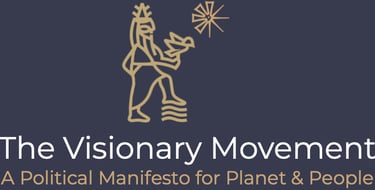LAW & THE JUSTICE SYSTEM
One law for all — fair, transparent, and accountable: Restoring justice by ending corruption, bias, and corporate capture.


A Comprehensive Re-evaluation
Of All UK Laws
Laws are created by people who are not intelligent enough to find solutions to problems. We will solve problems, abolishing antiquated and unjust laws in the process.
Laws should serve as solutions to societal challenges, ensuring justice and fairness for all. However, some laws are born out of the inability to address problems effectively, or as a response to existing, flawed legislation.
Furthermore, certain laws are intentionally broken to create a demand for products or services, perpetuating a cycle that benefits the economy and those in power.
As regulations and policies pile up, the erosion of respect for the law becomes increasingly evident.
Outdated laws that aim to control without purpose and oppressive measures have no place in a modern justice system. Instead, we must embrace a moral framework that safeguards individual rights, allowing people to lead peaceful lives in alignment with their values.
It Is Time To Rethink Our Approach
We need a new direction that restores faith in our legal system and ensures that every law serves its intended purpose. In the name of synaptocracy, we should have the freedom to live according to our choices. Unfortunately, many laws today restrict our freedoms and limit our rights and liberties.
Together, let's build a framework that commands respect and delivers tangible results for the betterment of our society.
A Comprehensive Re-evaluation Of All UK Laws
A thorough evaluation of the British justice system is essential to identify laws that require immediate revision or removal. The review aims to ensure that our laws align with the principles of fairness, justice, and the overall well-being of our society and the planet.
During this evaluation, we will scrutinise laws that infringe upon an individual's fundamental right to a fair trial by their peers. We will assess the societal impact of legislation, eliminating those that offer little to no benefit to the public and only serve the interests of a select few.
We will address laws that coerce people into unnecessary consumption, protecting citizens from unnecessary financial burdens. Additionally, we will challenge legislation that shields actions detrimental to public health and the environment, prioritising the well-being of our communities.
Outdated laws that no longer hold relevance in our modern society will be carefully examined and updated accordingly. Our goal is to replace oppressive laws with protective measures that empower individuals and uphold their rights.
Lastly, laws that fail to contribute to positive change in public opinion and behaviour will be reassessed, ensuring that our legislation aligns with the aspirations and values of our diverse society.
Through this comprehensive evaluation, we will swiftly retract or redraft any legislation found to fall within these identified categories. Together, we will build a justice system that truly serves the people and safeguards the principles we hold dear.
Fighting For Economic Justice
Our economy should not be a game where only a few benefit while the rest suffer. It's time to challenge the destructive nature of our fractional banking system that prioritises profit over people's lives.
Many individuals who have engaged in fraudulent activities or found themselves imprisoned due to financial difficulties did so in pursuit of success within this flawed system.
We believe in second chances and restoring fairness to our society. That is why we advocate for a comprehensive review of financial crime convictions and the release of individuals incarcerated for non-violent offences related to debt, tax, or similar issues. They deserve a fresh start, free from the burdens of an unjust system.


Greenhalgh's Law
Prohibition of Exploitation of Crises and Misfortune for Financial Gain.
Recognising the imperative to protect human dignity, animal welfare, and the environment, this legislation seeks to eliminate the exploitation of crises and misfortune for financial gain. It aims to establish a just society where the well-being of all living beings and the preservation of natural resources are paramount.
By fostering a culture that values prevention over profit from adversity, we can inspire individuals and organisations to act with integrity and compassion. This approach not only addresses immediate challenges but also builds resilience and a strong moral foundation within our society.
Greenhalgh's Law aims to create a fair and ethical marketplace by eliminating practices that profit from human suffering, animal exploitation, and environmental harm. By establishing the Ethical Commerce Commission and implementing targeted taxation, the law seeks to incentivise responsible business practices and protect the well-being of all living beings and the planet.
In part, this legislative framework draws inspiration from, and aims to replace, existing UK environmental tax measures, such as the Climate Change Levy and the Plastic Packaging Tax, both of which were sold as a means to encourage businesses to operate in an environmentally friendly manner. However, it is worth noting that the Plastic Packaging Tax has not discouraged businesses to use alternatives to plastic, nor has it resulted in the legalisation of plastic alternatives such as hemp. Instead, it has merely become another stealth tax placed upon the consumer.
Additionally, the law aligns with the UK's commitment to achieving net-zero greenhouse gas emissions by 2050, as outlined in the Environmental Improvement Plan 2023.
Section 1: Definitions
Exploitation: The act of profiting from human or animal suffering, or environmental degradation, through the manufacture, trade, promotion, or provision of products or services.
Crisis: A significant event or series of events causing widespread distress, hardship, or disruption, including but not limited to natural disasters, pandemics, economic downturns, and conflicts
Misfortune: An event or circumstance leading to hardship or adversity, such as accidents, illnesses, or personal tragedies.
Environmental Degradation: The deterioration of the natural environment through the depletion of resources, destruction of ecosystems, and pollution.
Section 2: Prohibition Of Exploitative Practices
It shall be unlawful for any individual, corporation, or entity to manufacture, trade, promote, or provide products or services that profit from human or animal suffering, or environmental degradation.
This prohibition extends to all sectors, including but not limited to healthcare, entertainment, finance, and retail.
Section 3: Establishment of Regulatory Bodies
A new regulatory body, the Ethical Commerce Commission (ECC), shall be established to oversee and enforce the provisions of this law.
The ECC shall have the authority to:
a.Monitor and assess products and services for compliance with this law.
b. Investigate and prosecute violations.
c. Implement educational programs to inform the public and businesses about ethical practices.
Section 4: Taxation And Financial Measures
A new tax system shall be implemented targeting products, services, and entities that profit from misery, disaster, or environmental destruction.
The tax rates shall be structured as follows:
a. High taxes on products and services that exploit crises or environmental degradation.b. Incentives and tax reliefs for businesses adopting sustainable and ethical practices.
Section 5: Transition And Implementation
A transition period of 12 months from the enactment of this law shall be provided for businesses to comply with the new regulations.
During this period, the ECC shall offer guidance and support to assist businesses in aligning with ethical standards.
Section 6: Enforcement And Penalties
Violations of this law shall be subject to penalties, including fines, sanctions, revocation of business licenses and, in severe cases, imprisonment.
Penalties shall be proportionate to the severity of the violation and the harm caused to individuals, animals, or the environment.
Section 7: Review And Amendments
This law shall be reviewed every five years to assess its effectiveness and make necessary amendments.
Public consultations shall be conducted to gather input from stakeholders, including businesses, consumers, and environmental groups.
Section 8: Title
This Act may be cited as "Greenhalgh's Law: Prohibition of Exploitation of Crises and Misfortune for Personal Gain."
By enacting Greenhalgh's Law, the UK will set a precedent for ethical governance, ensuring that economic activities contribute positively to society and the environment, rather than perpetuate a recipe for disaster, misery, and suffering.
GET IN TOUCH
SUBSCRIBE FOR UPDATES
WhatsApp: +44 (0)7413 47 46 48
© 2025. All rights reserved.


FOLLOW
Support the movement: Make a Donation




